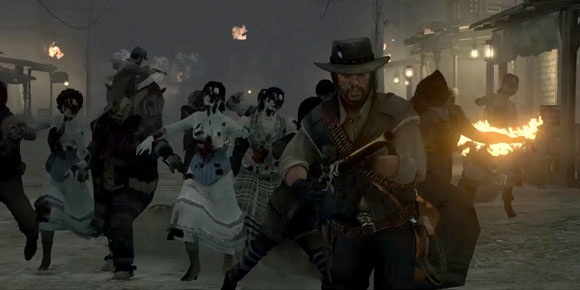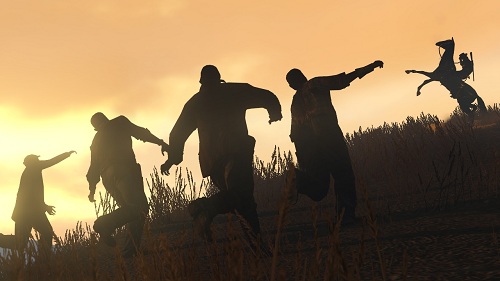This post has not been edited by the GamesBeat staff. Opinions by GamesBeat community writers do not necessarily reflect those of the staff.
In Grand Theft Auto 4: Episodes from Liberty City, Rockstar North took a fresh approach to DLC. Instead of giving Niko a new town to drive around, new gangsters to shoot, and a new challenge, they shifted the perspective to an Alderney-based gang of bikers, then to the bodyguard of an Algonquin nightclub-owner. These episodes were great because they introduced us to new Liberty City-ites (Libetiers? Libertarians?) who saw different parts of the city in a way Niko couldn't.
Rockstar San Diego have gone their own way with their DLC campaign for Red Dead Redemption — first they released several additions to the game's multiplayer component, and now a five-hour story.

Red Dead Redemption: Undead Nightmare's plague has spread all over the Western Border States and Mexico. This means you'll be fast-travelling often. Whereas I was content to ride from town to town while hunting Bill Williamson, I saw a lot of green-tinted menu screens this time. The focus on one area, as in The Lost and Damned and The Ballad of Gay Tony, is totally absent. You won't be revisiting the same place often, but you won't grow attached to the towns you rescue either.
As for the action — that works like it always did, except nobody shoots back. You'll be using slow-motion to get headshots, and running up to zombies while hammering the right trigger, hoping to pull off a canned executionanimation. It feels like a mod — a cover-based shooter hacked into a zombie-slaying game.

There's only a hint (hastily bludgeoned into the story's climax) of Red Dead's themes of redemption and escaping the past. Otherwise, it's just a b-movie horror tale set in the wild west.
By looking at how people might react to the dead rising from the ground, and who they blame for this apocalypse, Undead Nightmare's writers have attempted some social commentary. Unfortunately, characters are so transparent, their theories could be summarized "I am an unsubtle bigot. I blame the homosexual Catholic British conspiracy," or "I am a caricature of a xenophobe. I blame immigrants." Watching Armadillo's anti-Semitic shopkeep being mauled by the undead would've been more satisfying if he was less of a straw man. (Not that I'd wish that on even the vilest Tea Partier.)

It sounds obvious when the words are next to each other in a sentence, but Undead Nightmare is just a dream — it introduces a situation at odds with Marston's reality, but does it with familiar characters and locations. I'm glad Rockstar San Diego chose to experiment by telling a story perpendicular to Redemption's, but I'm also glad I can wake up from it.
